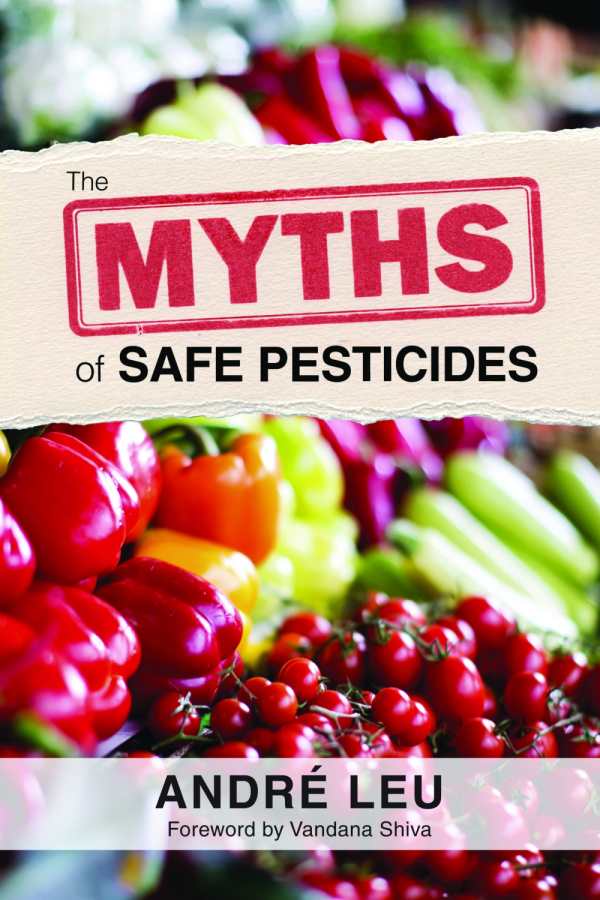
The Myths of Safe Pesticides
Leu explains chemical processes in understandable terms, using illustrations and photos to further his arguments.
In his new book, The Myths of Safe Pesticides, André Leu makes a powerful case against using agricultural chemicals. Bolstered by his four decades of farming experience and as president of the International Federation of Organic Agricultural Movements, his passionate, cogent prose dissects commonly held myths trotted out by the chemical industry in defense of their products and points out the harm to human and environmental health by their continued use.
Leu’s analysis of peer-reviewed, published scientific literature about the toxicity of pesticides—materials which he asserts government regulators do not routinely examine, relying instead on unpublished, industry-supplied data—presents some alarming conclusions. The author believes that a century of pesticide, herbicide, and GMO use has contributed to many of the world’s problems: human disease epidemics of cancers, diabetes, and neurological conditions; creation of pesticide- and herbicide-resistant super pests and super weeds; weakened bee and other beneficial insect populations; reduced biodiversity; water pollution; soil erosion; and threats to global food security.
The reader’s unease grows with every chapter as Leu’s evidence mounts. He contends that pesticide regulators use outdated scientific methods and rationales that do not test for synergistic effects of chemicals, toxicity of “inert” ingredients, toxicity of the metabolites created when pesticides degrade, effects on the long-term health of fetuses and growing children, and the insidious effects of small amounts of pesticides in mimicking human hormones. While many of these chapters discuss complex biological and chemical concepts, Leu explains them in easily understandable language, and he deftly integrates text with illustrations and photographs to communicate these ideas further. Readers who want to research certain topics in greater depth are guided by extensive footnotes and bibliographic references.
The concluding chapter has a more hopeful tone, as it highlights some innovative organic farming practices that offer pesticide-free methods to increase crop yields and survive increasing swings in climate extremes.
If readers haven’t already been converted to the gospel of organic agriculture, Leu’s book will provide the baptismal waters. As he persuasively notes, future historians will wonder why our leaders did not move swiftly to replace conventional farming methods with sustainable, chemical-free alternatives: “They will ponder whether the cause of this inaction was incompetence, laziness, corruption, protecting reputations that were built on outdated scientific methodologies, or greed on the part of a few to generate great wealth at the expense of many.”
Reviewed by
Rachel Jagareski
Disclosure: This article is not an endorsement, but a review. The publisher of this book provided free copies of the book to have their book reviewed by a professional reviewer. No fee was paid by the publisher for this review. Foreword Reviews only recommends books that we love. Foreword Magazine, Inc. is disclosing this in accordance with the Federal Trade Commission’s 16 CFR, Part 255.
